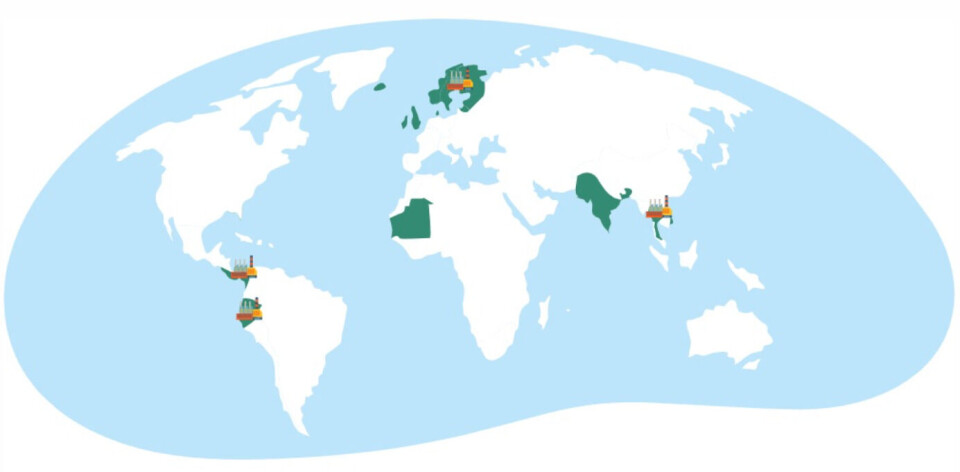
MarinTrust offers easier access to fisheries information
Organisation that recognises sustainability efforts made by marine ingredients sector launches ‘accessible and transparent’ new web page
Marine ingredients sustainability programme MarinTrust has launched an interactive resource page on its website to provide an accessible and transparent centre for the completed and on-going Fishery Improvement Projects (FIPs) under its Improver Programme (IP).
The MarinTrust’s Improver Programme (IP) is a structured, timebound process, through which marine ingredient production factories sourcing from improving fisheries (i.e., FIPs) can gain recognition of their production.
There are currently six active FIPs accepted on the MarinTrust programme. To ensure the FIP information can be easily accessed, and progress reviewed, MarinTrust has improved the profiles on the website.
Demonstrating improvements
To maintain compliance, all accepted FIPs must demonstrate improvements in line with a Fishery Action Plan including the associated evidence. All this information must be transparent and made public on the MarinTrust website to ensure the FIPs are credible and can be scrutinised by external stakeholders.
In addition, to provide a simple and internationally recognised measure of the FIPs progress, MarinTrust has worked with the Sustainable Fisheries Partnership (SFP) to incorporate the FIP ratings Evaluation Tool. This tool provides a rating which is determined through the Sustainable Fisheries Partnership FIP Evaluation Program. SFP’s FIP Evaluation Tool defines and assesses FIPs against time benchmarks to understand the rate at which a fishery is improving and assign a related letter grade and reports these on the FishSource website.
Of the six on-going FIPs, Gulf of Thailand mixed trawl (multispecies pilot) is not yet rated; Mauritian small pelagics is FIP rated A; Ecuadorian small pelagics, Indian oil sardine (Goa and Maharashtra), and Vung Tau trawl, Vietnam (multispecies pilot) are rated B; and Northeast Atlantic blue whiting is rated C.
Disputed quotas
The whiting fishery FIP is being coordinated by Neil Auchterlonie, North Atlantic Pelagic Advocacy Group (NAPA), a consultant and former technical director of marine ingredients organisation IFFO.
Established in June 2020, NAPA is a market-led approach working to improve North Atlantic pelagic fisheries management. It was formed in response to the continuing dispute over pelagic fishery quota allocations in the Northeast Atlantic. Over time, this dispute has resulted in annual catches well in excess of the advised level for three commercially important species: Northeast Atlantic mackerel, Atlanto-scandian (Norwegian spring spawning) herring, and Northeast Atlantic blue whiting.
NAPA aims to drive sustainability in these fisheries by securing an agreement on total allowable catches (TACs) in line with scientific advice, as well as long-term science-based fisheries management strategies. The group intends to tackle these issues through the establishment of a Fishery Improvement Project (FIP) for mackerel and herring, and a MarinTrust FIP for blue whiting. The FIPs both serve to drive political will while holding key actors and decision-makers to account.
There are 22 marine ingredients factories accepted into the whiting FIP, in Denmark, Iceland, Norway, Ireland, the Faroes and the UK. They include PF Havsbrun, the feed subsidiary of Faroese salmon farmer Bakkafrost, and Pelagia Aberdeen.























































